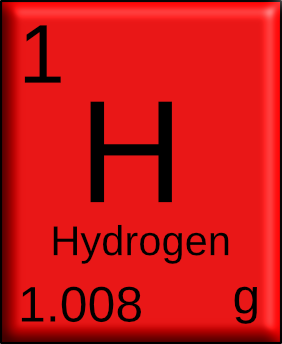Hydrogen
Etymology
The term “Hydrogen” is derived from the Greek words ‘hydor’ meaning “water” and ‘genes’ meaning “creator” or “generator”. The name was coined to signify the element’s role in the formation of water when it combusts in the presence of oxygen.
History
Hydrogen was first identified as a distinct substance by Henry Cavendish in 1766, although earlier scientists, including Robert Boyle, had produced hydrogen gas during various chemical experiments. Cavendish accurately described it as “inflammable air from metals” and demonstrated that it produces water when burned. The element’s nomenclature and further understanding were contributed by Antoine Lavoisier.
Physical and Chemical Properties
Hydrogen is a colorless, odorless, and tasteless gas at room temperature and atmospheric pressure. It is the lightest and most abundant element in the universe, constituting approximately 75% of its elemental mass. On Earth, however, it exists primarily in compound forms such as water and hydrocarbons. It has an atomic number of 1 and an atomic weight of approximately 1.008 atomic mass units (amu).
Occurrence and Abundance
- When Discovered: 1766
- Where Primarily Found on Earth: Hydrogen is most commonly found as a constituent of water and various organic compounds.
- Percentage of Prevalence: It makes up approximately 0.00005% of the Earth’s crust by weight but is the most abundant element in the universe.
- How it is Mined or Created: Hydrogen is usually produced through methods like steam methane reforming and electrolysis of water.
Applications and Uses
Hydrogen is used in a wide array of applications, including:
- As a fuel in hydrogen fuel cells
- In petroleum refining for cracking heavy hydrocarbons
- In the production of ammonia for fertilizers through the Haber process
- As a reducing agent in metallurgy
- In weather balloons and airships due to its lower density than air
- For cooling in electrical generators
- In scientific research, particularly in quantum mechanics studies
Environmental and Health Impacts
Hydrogen gas is not toxic but can pose asphyxiation hazards in high concentrations. It is also extremely flammable and poses explosion risks when mixed with air or oxygen. However, hydrogen is considered an eco-friendly fuel option because its combustion only produces water as a by-product.
References
- Cavendish, H. (1766). “Three Papers, Containing Experiments on Factitious Air”. Philosophical Transactions.
- Lavoisier, A. (1789). “Traité Élémentaire de Chimie”.
- “Abundance in Earth’s Crust” – Geochimica et Cosmochimica Acta, 2002; Vol. 66, Issue 1.
- Eberle, U., Mueller, B., & von Helmolt, R. (2012). “Fuel cell electric vehicles and hydrogen infrastructure: status 2012”. Energy & Environmental Science, 5(10), 8780-8798.

